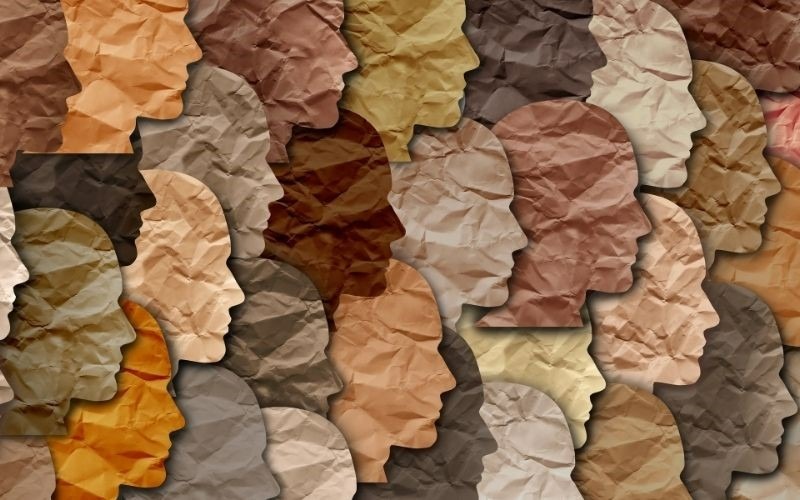Utilizing EMDR Therapy in Black Communities
Guest Blog Post by Desyree Dixon, EdD, LCSW-C
 Tell us a little bit about you, your experience becoming an EMDR therapist, and your experience using EMDR in Black communities?
Tell us a little bit about you, your experience becoming an EMDR therapist, and your experience using EMDR in Black communities?
I am a trauma and grief therapist in Baltimore City [Maryland]. Becoming an EMDR trained therapist was a game changer for me and my practice. Before EMDR training, I often felt that I lacked the tools to support my clients fully. I am now confident that I have the tools and knowledge to help my clients. Since my EMDR training, I created a framework specifically designed to support clients with marginalized identities and identity-based traumas. This tool has been life-changing not only for my clients but for the clients of other EMDR therapists who have been trained in the framework.
What is your favorite part of working with this population?
My favorite part of working with Black clients is knowing that I have tools like resourcing to share with them. It gives me joy to see so many of my clients finally feel empowered in connecting with their bodies, particularly if the traumas they experienced are bodily traumas, whether emotional or physical.
How can EMDR therapists honor and celebrate Black History month throughout the year (not only in February)?
To honor Black history not just in the month of February but ongoing is to honor the many stories that are trapped in Black bodies. Many of these stories have been passed down through multiple generations. Using the AIP framework, EMDR therapists can center the client, enable them to share their story, and reimagine that trauma through a new lens that is filled with joy, resiliency, and triumph.
We recently wrote about the importance of Community Cultural Wealth, which is a framework to recognize cultural strengths (Yosso – 2005). Please describe some internal and external resources that you strengthen/install with your Black/African-American clients to embrace Community Cultural Wealth.
I’ve used every one of the community cultural assets and strengths described in Yosso’s framework. Together, I and my clients have strengthened/installed a client’s strong relationship bonds with family and friends (social and familial capital), educational/professional achievements and dreams for a better life (aspirational capital), collective wisdom on how to survive oppressive systems (navigational capital), and others.
Are there any myths you’d like to bust about EMDR therapy with Black/African American clients?
Some clients have asked me whether EMDR is like voodoo or conflicts with their spiritual beliefs. Others have asked if EMDR is the same as hypnosis. No, EMDR is not voodoo, although its effects may seem magical. It is an evidence-based practice that can complement spiritual values. Finally, it is not hypnosis. Clients who feel overwhelmed can decide to pause or stop the process. During EMDR processing clients are awake and capable of engaging with their therapist.
Do you have a favorite free EMDR-related resource that you would suggest to therapists working with this population? (ie: article, podcast episode, video, handout, exercise?)
The Fall 2020 edition of Go With That magazine “EMDR and Racial Trauma” is full of helpful, thought-provoking content, even if you’ve read it before.
Anything else you’d like to add?
EMDR offers amazing tools, knowledge, and frameworks to help clients process trauma. I am glad that as more clinicians who serve those with marginalized identities get trained, EMDR becomes available to more clients who need it.
Desyree Dixon, EdD(c), LCSW-C, is an EMDRIA Trainer and the Founder and CEO of Bolton Therapy & Wellness. This award-winning private group practice specializes in treating trauma. She is also the Founder and CEO of Whew! Corporation is a psychological consulting firm that works with organizations to enhance company and staff performance through executive coaching, training, and consulting, improve employee mental health and wellness, and address workplace trauma.
Desyree currently serves on the inaugural Baltimore City Trauma Informed Care Task Force, which is working to make Baltimore the first trauma-informed city. She also serves on the Board of Directors for Safe Shores, a non-profit that provides advocacy for children and adolescents affected by trauma and violence.
She offers training therapists on best practices in treating trauma, including courses in the Life Model EMDR Basic and other training related to Identity-Based Traumas. She created (i) the LIFESPAN Model, an innovative therapeutic framework for trauma therapy and (ii) Trauma-Based Identity Distressors (TBID), a framework for conceptualizing and treating identity issues, including identity-based trauma.
References
Levis, R. V. (2017). Placing Culture at the Heart of EMDR Therapy. In Nickerson, M. I. (Ed.), Cultural Competence and Healing Culturally-Based Trauma with EMDR Therapy: Innovative Strategies and Protocols (pp. 97-112). New York, NY: Springer Publishing Co.
Levis, R. V., & Siniego, L. B. (2017). An Integrative Framework for EMDR Therapy as an Anti-Oppression Endeavor. In Nickerson, M. I. (Ed.), Cultural Competence and Healing Culturally Based Trauma with EMDR Therapy: Innovative Strategies and Protocols (pp. 79-96). New York, NY: Springer Publishing Co.
Yosso, T. J. (2005). Whose culture has capital? A critical race theory discussion of community cultural wealth. Race, Ethnicity, and Education, 8(1), 69-91. https://doi.org/10.1080/1361332052000341006
Back to Focal Point Blog Homepage
Additional Resources
If you are a therapist interested in the EMDR training:
- Learn more about EMDR at the EMDRIA Library
- Learn more about EMDR Training
- Search for an EMDR Training Provider
- Check out our EMDR Training FAQ
If you are EMDR trained:
- Check out EMDRIA’s Let’s Talk EMDR Podcast
- Check out the EMDRIA blog, Focal Point
- Learn more about EMDRIA membership
- Search for Continuing Education opportunities
If you are an EMDRIA Member:
- Learn more about EMDR Consultation
- Find clinical practice articles in EMDRIA’s Go With That Magazine
- Search for articles in Journal of EMDR Practice and Research in the EMDRIA Library
Date
February 19, 2024
Contributor(s)
Desyree Dixon
Client Population
Racial/Cultural/Ethnic Groups
Practice & Methods
DEI/IDEA





